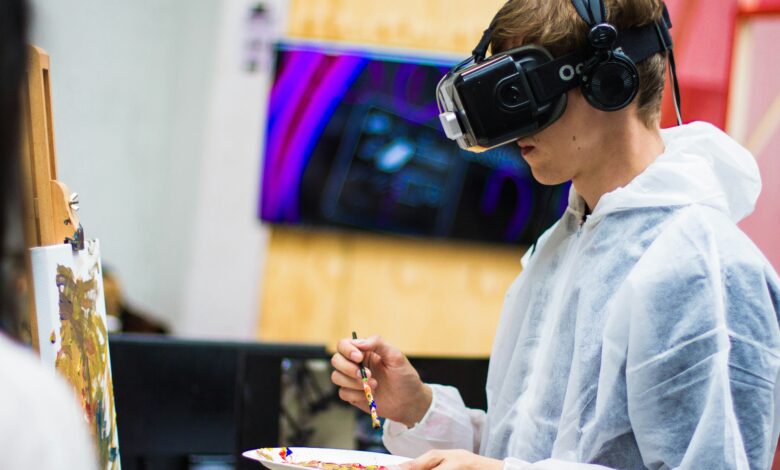
Virtual Reality (VR) is not just a buzzword anymore; it’s a transformative force reshaping various sectors, and the entertainment industry is no exception. With VR technology advancing rapidly, it’s creating new possibilities and redefining how we experience movies, games, and live events. Let’s dive into how Virtual Reality is making waves in the entertainment world.
1. Immersive Gaming Experiences
One of the most exciting changes brought about by Virtual Reality is the evolution of gaming. Traditionally, gamers interacted with a screen and a set of controls, but VR introduces a new dimension. By wearing a VR headset, players are transported into the game world, where they can look around, interact with objects, and engage in combat as if they were physically present.
Games like “Beat Saber” and “Half-Life: Alyx” are prime examples of how VR is enhancing gameplay. These titles offer immersive environments that respond to player movements in real-time, making the experience more engaging and realistic. The physicality of VR gaming also encourages movement and exercise, adding a health benefit to the fun.
Furthermore, VR allows for the creation of entirely new types of games. Imagine exploring alien planets or ancient civilizations in a way that feels tangible and immersive. With VR, the only limit is the imagination of the developers, leading to a surge of innovative game concepts that were previously impossible.
2. Revolutionary Cinematic Experiences
The film industry is also embracing Virtual Reality to offer audiences a new kind of movie experience. VR films are designed to be watched with a headset, placing viewers in the center of the action. Instead of watching a movie unfold on a flat screen, you’re placed in a 360-degree environment where you can look around and experience the story from different angles.
For example, VR experiences like “The Lion King VR” let you explore the world of the movie in a way that’s more interactive and immersive. This technology allows filmmakers to experiment with storytelling techniques and create narratives that can be experienced in a more personal and engaging way.
Moreover, VR is not just for entertainment but also for educational purposes. Documentaries and educational films can use VR to immerse viewers in historical events, scientific phenomena, or environmental issues, providing a deeper understanding and emotional connection to the subject matter.
3. Transforming Live Entertainment
Live events, such as concerts and theater performances, are also being transformed by Virtual Reality. With VR, you can attend a live concert or theater production from the comfort of your home. This technology allows fans to experience the thrill of a live performance without the need to travel or face the logistical challenges of attending an event in person.
Concerts and theater companies are experimenting with VR to offer virtual front-row seats, behind-the-scenes access, and even interactive elements where viewers can influence the performance. This democratizes access to live entertainment, making it possible for more people to enjoy high-quality performances regardless of their location.
Additionally, VR can enhance the experience of attending live events by providing additional layers of interaction. For instance, during a VR concert, you might be able to interact with other viewers, participate in virtual meet-and-greets, or access exclusive content, creating a more immersive and engaging experience.
4. New Frontiers in Interactive Storytelling
Interactive storytelling is another area where Virtual Reality is making a significant impact. Unlike traditional media, where the audience is a passive observer, VR enables a more active role in the narrative. Interactive VR experiences allow users to make choices that affect the outcome of the story, leading to a more personalized and engaging experience.
These interactive stories can range from simple decision-based games to complex narratives where every action has consequences. This level of immersion creates a deeper connection between the user and the story, as participants become integral to the unfolding events.
Additionally, VR facilitates collaborative storytelling, where multiple users can interact within a shared virtual space. This opens up new possibilities for group experiences, such as virtual escape rooms, interactive theater, and social simulations, expanding the ways in which stories can be told and experienced.
Conclusion
Virtual Reality is revolutionizing the entertainment industry by introducing new ways to engage with games, films, live events, and interactive narratives. The immersive experiences provided by VR technology are pushing the boundaries of traditional entertainment and offering audiences unprecedented levels of engagement and interactivity. As VR continues to evolve, we can expect even more innovative applications and experiences that will further transform the entertainment landscape. The future of entertainment is here, and it’s more immersive and exciting than ever before.




